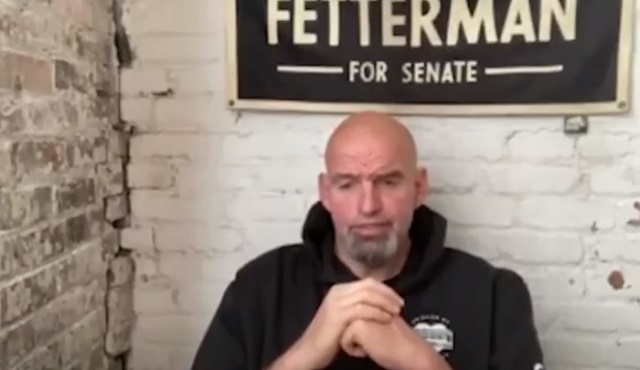Venezuela: Amid socialist humanitarian crisis, no improvement in human rights

The human rights situation in Venezuela has been dire for many years, with little indication of improvement. Since 2014, there have been 15,800 politically motivated arrests, and over 270 political prisoners continue to languish in Venezuelan jails.
The misguided economic policies implemented by successive socialist governments have led to 19 million people facing malnutrition and a severe lack of healthcare. Consequently, a staggering 7.7 million individuals, out of a population of just over 29 million, have fled the country since 2014.
The government has even taken the drastic step of closing the UN Human Rights Office, purportedly due to its alleged involvement in anti-government activities. Furthermore, new legislation threatens to criminalise and impede the work of civil society within the country.
Once considered one of the wealthiest nations in Latin America, Venezuela has descended into a socialist dystopia marred by authoritarianism, a dearth of human rights, insufficient government investment, hyperinflation, rampant corruption, economic mismanagement, the collapse of public services, economic hardship, shortages, and widespread hunger. Currently, fifty percent of the population lives in poverty.
Popular tyrant
Socialism was introduced in Venezuela by Hugo Chávez, a populist who held the presidency from 1999 until his death in 2013. Chávez implemented the nationalisation of industries and directed public funds towards social programs. As a result, schools saw improvement, the unemployment rate halved, and per capita incomes more than doubled. Moreover, both the poverty rate and infant mortality rates decreased by 50 percent.
Chávez was widely praised domestically for his stance against the United States, famously referring to President George W. Bush as “the devil”. Following Chávez’s death from cancer, Nicolás Maduro succeeded him as president.
While Chavez was a charismatic populist, one of the most notable distinctions lies in his ability to forge a coalition comprising leftists, military personnel, and the poor. Furthermore, Chavez was lucky. He capitalised on a surge in oil prices during his presidency. As a prime example of a petrostate, Venezuela’s fortunes are directly tied to the rise and fall of global oil prices. Chavez successfully directed a portion of the $1 trillion windfall in oil revenue towards appeasing the public and solidifying his grip on power.
Despite his widespread popularity, Chavez operated as a dictator and tyrant. He expanded state control over oil companies and suppressed journalists and critics, essentially outlawing government criticism. Consolidating nearly all power into his own hands, he eradicated checks and balances.
Nonetheless, he maintained the façade of democracy by holding elections. Winning 13 out of 14 elections lent an aura of legitimacy to his regime. He utilised state funds for his campaigns and exerted influence over journalists to portray him favourably, although he refrained from outright election fraud. Moreover, he survived a coup attempt, bolstering his image and authority.
Economic woes
Maduro lacks the charisma of Chavez. While Chavez had a military background, Maduro’s career path was rooted in communism. He pursued studies in Cuba, was affiliated with the Socialist League — an extreme left-wing organisation — and prior to entering government, he worked as a union negotiator.
He lost much of Chavez’s support base, securing election with a mere 50.6 percent of the vote. Consequently, he has governed the country as an autocrat. Besides lacking Chavez’s charisma and broad consensus, Maduro hasn’t enjoyed his predecessor’s luck: oil prices plummeted in 2014, leading to the complete collapse of the Venezuelan economy.
At times, annual inflation has soared to as high as 700 percent, reaching about 300 percent in 2022. Between 2015 and 2016, an estimated seventy-five percent of the country’s population experienced an average weight loss of 19 pounds. Diseases such as malaria have ravaged the nation due to the inability of people to afford imported medicines.
While Chavez allocated funds to improve citizens’ lives, he failed to diversify the economy away from oil dependency. Maduro has perpetuated this legacy by neglecting structural economic reforms and instead imposing stricter government controls. He restricted currency exchange systems, leaving ordinary citizens unable to afford medicine, basic household goods, and imported foods that must be purchased with dollars.
In the socialist utopia of the Bolivarian Republic of Venezuela, everyone is purportedly equal, except for those with connections to the Maduro government. They have access to discounted dollars and can afford imported goods, which now encompass almost all but the most essential food items for survival. Necessities like toilet paper must be imported and purchased with dollars. Despite being a major oil producer, the country even grapples with fuel shortages.
Even individuals fortunate enough to possess dollars or receive remittances from friends and family abroad are not immune to the effects of inflation.
For instance, a woman who sells cigarettes and small items on the street disclosed that she earns approximately $20 a week. However, due to the relentless surge in prices, this income barely covers 15 eggs, 3 kilograms (6.6 lb) of corn flour, and a small portion of grain and cheese.
In Venezuela, the average monthly salary in the private sector stands at $139, while it’s a mere $14 in the public sector. Nevertheless, the grocery expenses for an average family amount to about $370 per month.
Deteriorating
Maduro has faced widespread protests and blocked a referendum because he understood that he wouldn’t secure victory, given his approval rating, which frequently dips to as low as 20 percent. Subsequently, he directed the Supreme Court to dissolve a portion of the legislature that opposed him. The state of democracy in Venezuela is deteriorating rapidly.
Recently, a new National Electoral Council (CNE) was formed, and several presidential candidates were disqualified. Additionally, opposition party members were detained prior to elections, indicating that the electoral process is likely to be more of a spectacle than a meaningful exercise in democracy.
Last year, a new National Electoral Council (CNE) was formed, and several presidential candidates were disqualified. Moreover, opposition party members were detained prior to elections, indicating that the electoral process is likely to be more of a spectacle than a substantive exercise in democracy.
Union workers, journalists, and human rights defenders have faced increasing restrictions on their access to civic spaces. Additionally, they’ve endured harassment and persecution orchestrated by the authorities. The rights of indigenous people, as well as those of LGBT individuals and women, have been egregiously disregarded. Notably, a YouTuber was recently charged with terrorism merely for challenging government policies.
The crackdown on dissenters has escalated, with critics subjected to surveillance, harassment, and criminalisation. In the most severe instances, they’ve become victims of torture and murder. In 2017, he secured victory in a rigged election. During this election cycle, he successfully postponed elections for an entire year, but they are anticipated to resume in October 2024. If these elections were fair and transparent, his defeat would be inevitable.
In what appears to be an effort to bolster the country’s revenues and alleviate the people’s suffering ahead of the next election, Venezuelan President Nicolás Maduro enacted a law annexing the oil-rich region of Essequibo in neighbouring Guyana. A consultative referendum was conducted on this decision last December, garnering a staggering 96 percent approval from the populace.
As per a statement from the presidential palace, Guayana Esequiba will now be recognised as the 24th federal state of Venezuela. Moreover, the inhabitants of the newly annexed territory will be represented in the upcoming parliamentary session in 2025. However, Guyana has sought a ruling from the International Court of Justice (ICJ), although Venezuelan law asserts that the ICJ holds no jurisdiction within the country.
Change in Venezuela appears elusive until Maduro is ousted from power. However, considering his influence over the upcoming elections, it seems unlikely that he will relinquish control voluntarily. The prospect of international military intervention in Venezuela is highly improbable, given the likelihood of opposition from Security Council members China and Russia. As for the alternatives of assassination or coup, history has demonstrated that such actions typically do not lead to positive outcomes, often resulting in the replacement of one authoritarian leader with another.
Can Venezuela’s parlous condition be reversed? Sound off in the comments section below.
AUTHOR
ANTONIO GRACEFFO
Antonio Graceffo, PhD, China-MBA MBA, is a China economic analyst teaching economics at the American University in Mongolia. He has spent 20 years in Asia and is the author of six books about China. His writing has appeared in The Diplomat, South China Morning Post, Jamestown Foundation China Brief, Penthouse, Shanghai Institute of American Studies, Epoch Times, War on the Rocks, Just the News, and Black Belt Magazine.
RELATED VIDEO: IN FOCUS: Elon Musk Brazil Conflict and the Brink of Dictatorship with Frankie Stockes – OAN
EDITORS NOTE: This Mercator column is republished with permission. All rights reserved.














